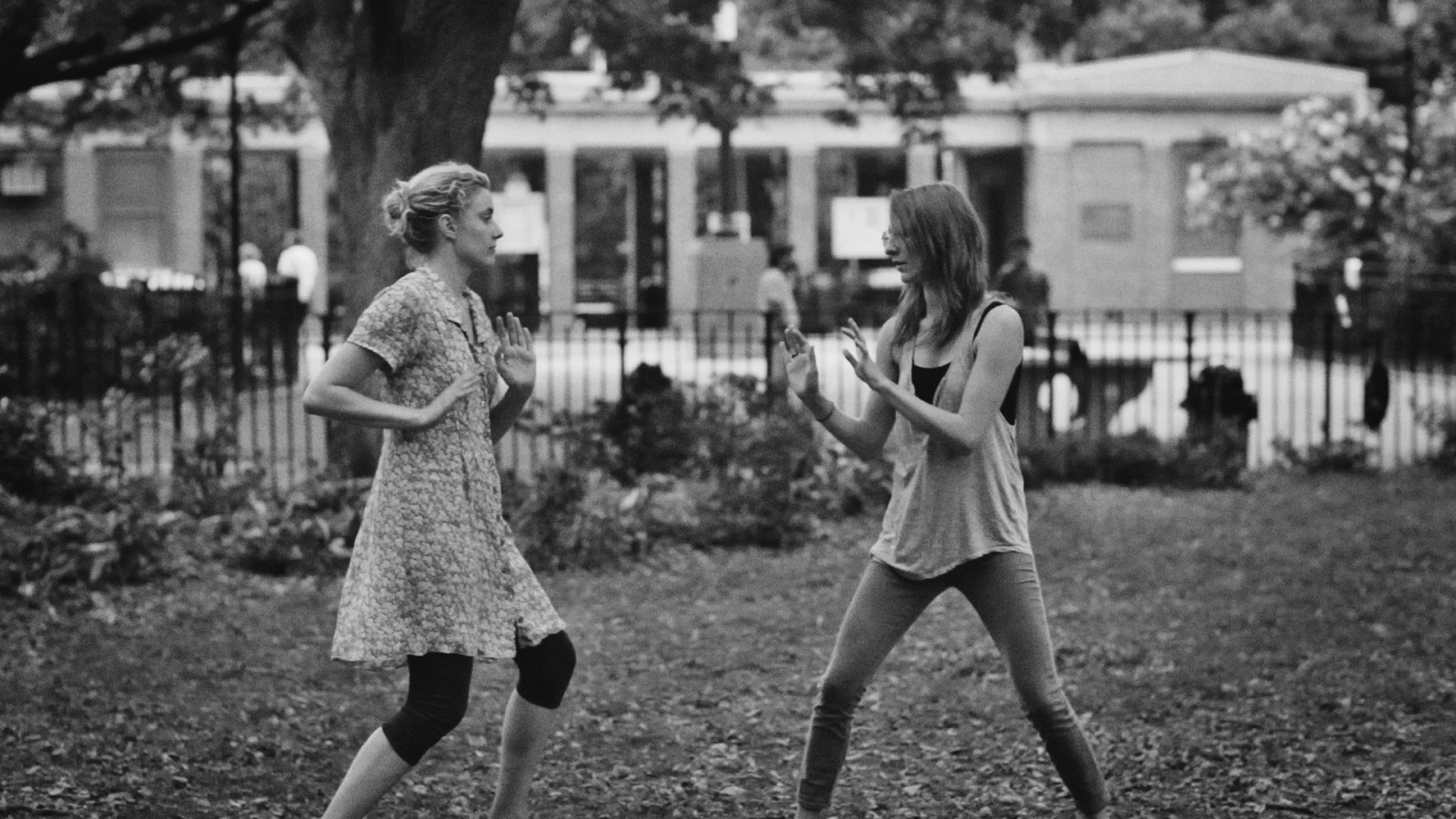Frances Ha
Opens Fri., May 24 at Meridian and Lincoln Square. Rated R. 86 minutes.
From her earliest mumblecore movies, something about Greta Gerwig didn’t quite fit the scene. Here were these lo-fi indie efforts (including LOL, Hannah Takes the Stairs, and Baghead), nobly scruffy around the edges, intended as the antitheses of Hollywood—and right in the middle of them was a movie star.
Hard to miss it: Gerwig may have been an unknown, but she had crack timing and silent-movie eyes. Despite the best efforts of all concerned, she jumped off the screen at you. Non-mumbly filmmaker Noah Baumbach took note and cast Gerwig in his caustic Greenberg, a move that led to a personal and professional partnership between the two.
The fruit of this is Baumbach’s Frances Ha, co-written by and starring Gerwig, an unabashed tribute to the actress’ distinctive (don’t you dare say “quirky”) charms. The outline of a typical indie picture is in place, as we follow 27-year-old Frances and her New York apartment-hopping over the course of a few months. Frances dreams of being a dancer, as though nobody’d told her that if you haven’t made it as a dancer by 27, your dream should probably be in the past tense. (Actually, somebody probably told her. But her go-with-the-flow optimism is undaunted by such realities.)
In the early reels, we mark Frances’ closeness to her BFF Sophie (Mickey Sumner), a bond that will fray as Sophie gravitates toward her boyfriend. Frances is dubbed “undateable” by a couple of temporary male housemates, although both seem interested in dating her.
The appeal of Frances Ha comes from Gerwig’s pluck and the film’s sprightly sense of play. Many scenes last only a few seconds, and consist of the kind of overheard conversational snippets that capture the found poetry of random eavesdropping. These bits provide a sense of Frances’ life, and perhaps hint at its disconnectedness. Shot in cheap-looking black-and-white, the film also conjures up Baumbach’s love of the French New Wave, and his soundtrack is peppered with vintage ’60s music by Georges Delerue.
As a shortcut to mood-making, the music works its magic, although it’s still a shortcut. More questionable is Baumbach’s recreation of a sequence from Leos Carax’s 1986 Mauvais Sang (Bad Blood ), in which its hero runs down a sidewalk as David Bowie’s “Modern Love” blares. That movie is obscure, and Baumbach couldn’t expect the average viewer to recognize the tribute, so why bother? Why not use a different song, at least?
Even as it veers into the precious, Frances Ha succeeds on its genuinely inventive rat-a-tat rhythm and Gerwig’s unpredictable delivery. It builds to an ending that is righteously non-Hollywood. But it feels good just the same.
film@seattleweekly.com







